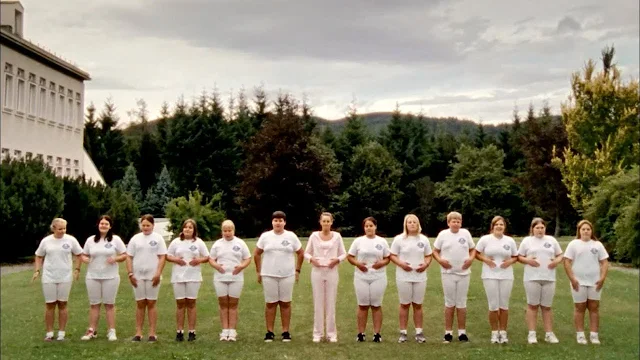Cast: Ronald Colman, Elizabeth Allan, Edna May Oliver, Reginald Owen, Basil Rathbone, Blanche Yurka, Henry B. Walthall, Donald Woods, Walter Catlett, Fritz Leiber, H.B. Warner, Mitchell Lewis, Claude Gillingwater, Billy Bevan, Isabel Jewell, Lucille La Verne. Screenplay: W.P. Lipscomb, S.N. Behrman, based on a novel by Charles Dickens. Cinematography: Oliver T. Marsh. Art direction: Cedric Gibbons, Fredric Hope, Edwin B. Willis. Film editing: Conrad A. Nervig. Music: Herbert Stothart.
It was the best of movies, it was the worst of movies. The best part is that Ronald Colman is a handsome Sydney Carton, who delivers the familiar closing line at the guillotine -- "It is a far, far better thing I do...." -- with the necessary nobility, and that the cast includes such ever-watchable character actors as Edna May Oliver, Basil Rathbone, Blanche Yurka (an implacable Mme. De Farge), and Lucille La Verne (as The Vengeance, literally but not figuratively toothless). The worst part is that the screenplay leans heavily on the sentimental parts of the novel and Elizabeth Allan is, like most Dickens heroines, a pallid and forgettable Lucie Manette. David O. Selznick produced, but it's not as successful a foray into Dickens as his superb David Copperfield, made the same year and with a better director, George Cukor.









